Exploring the Future of AI Chatbots in Automated Interactions

AI chatbots have revolutionized automated communication, making interactions faster and more efficient. You can now access support anytime, thanks to their 24/7 availability. Studies show that 69% of customers prefer using chatbots outside business hours, highlighting their growing demand. These tools also enhance productivity, with organizations seeing efficiency gains of up to 50%.
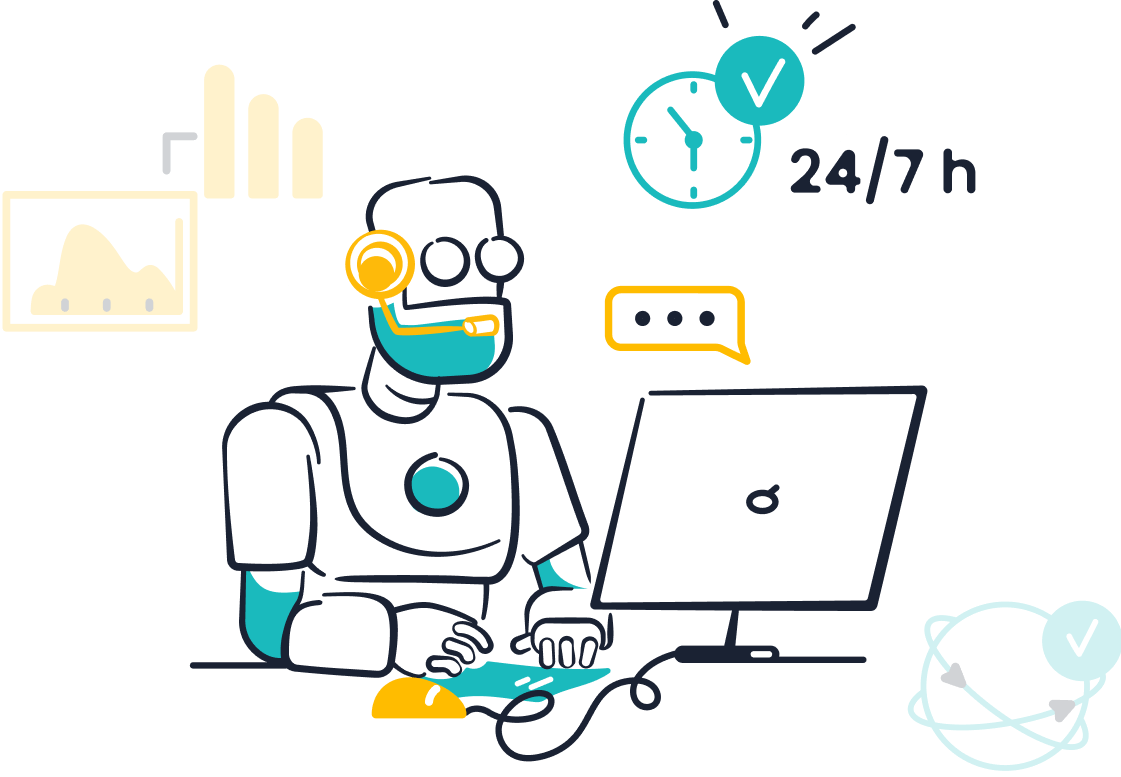
In customer service, chatbots simplify routine tasks, allowing agents to focus on complex problems. For example, Sobot's AI chatbot for automated communication on websites offers multilingual support and smart self-service features. It boosts conversions by 20% and reduces costs by handling queries autonomously. With innovations like these, chatbots are shaping the future of conversational AI, transforming how businesses interact with you.
Current State of AI Chatbots
Defining AI Chatbots
What is an AI chatbot for automated communication on websites?
An AI chatbot for automated communication on websites is a software application that interacts with users through text or voice. It uses artificial intelligence to simulate human-like conversations, providing instant responses to queries. These chatbots are commonly embedded on websites to assist visitors with tasks like answering FAQs, guiding purchases, or resolving issues. For example, Sobot's AI chatbot operates 24/7, offering multilingual support and smart self-service to enhance user experiences.
Key technologies driving AI chatbots
AI chatbots rely on advanced technologies to function effectively. Natural Language Processing (NLP) enables them to understand and respond to human language. Machine learning allows chatbots to improve over time by analyzing past interactions. Additionally, knowledge bases and intent recognition systems help chatbots provide accurate and context-aware responses. These technologies make AI chatbots indispensable for businesses aiming to streamline communication.
Capabilities of Modern AI Chatbots
Common applications in customer service and support
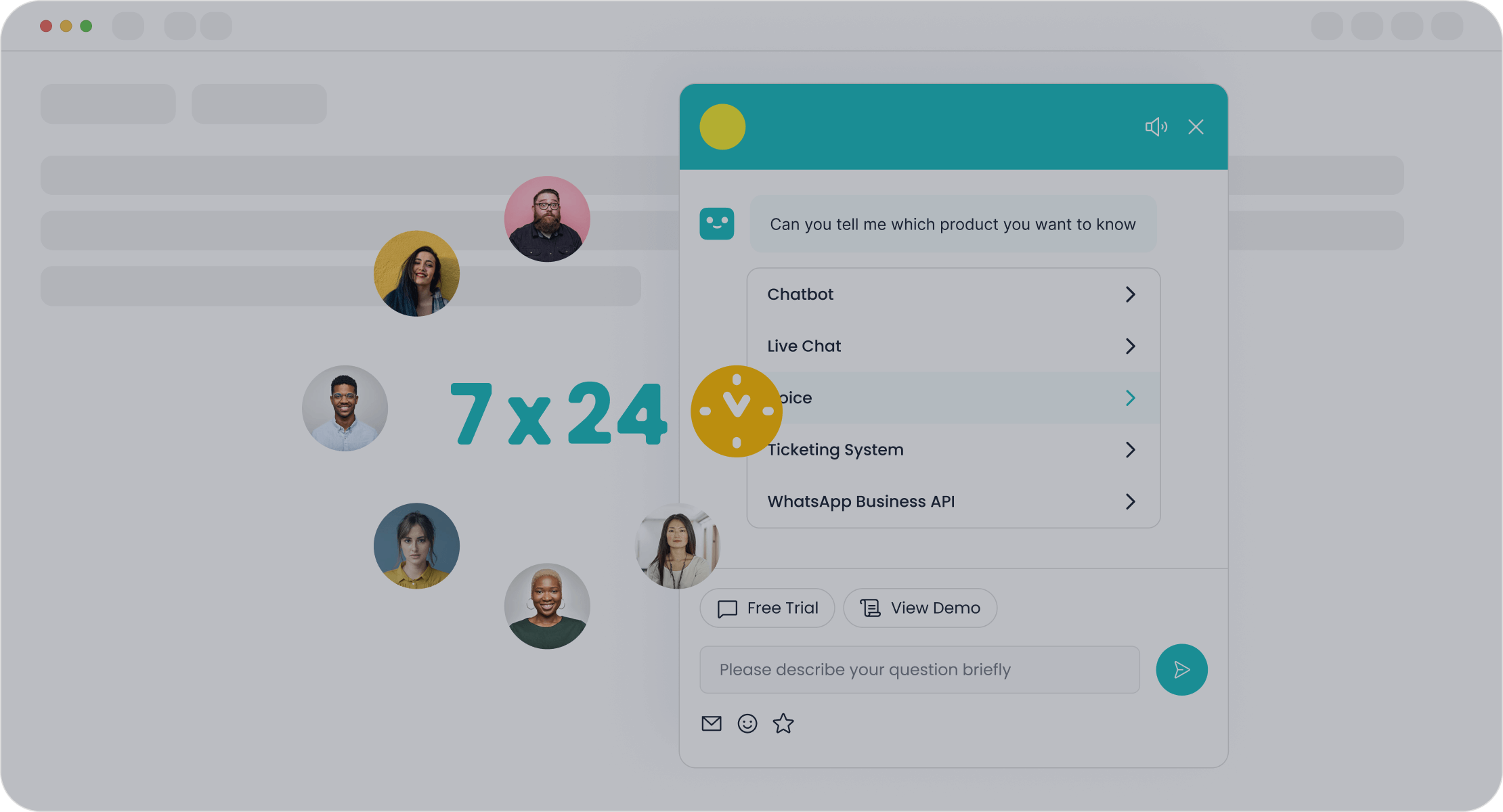
AI chatbots excel in customer service by automating routine tasks. They handle FAQs, assist with order tracking, and provide troubleshooting guidance. Customer service chatbots also reduce response times, ensuring users receive immediate assistance. For instance, Sobot's chatbot improves productivity by 70% and cuts costs by 50%, making it a valuable tool for businesses.
Examples of AI chatbots, including Sobot's Chatbot
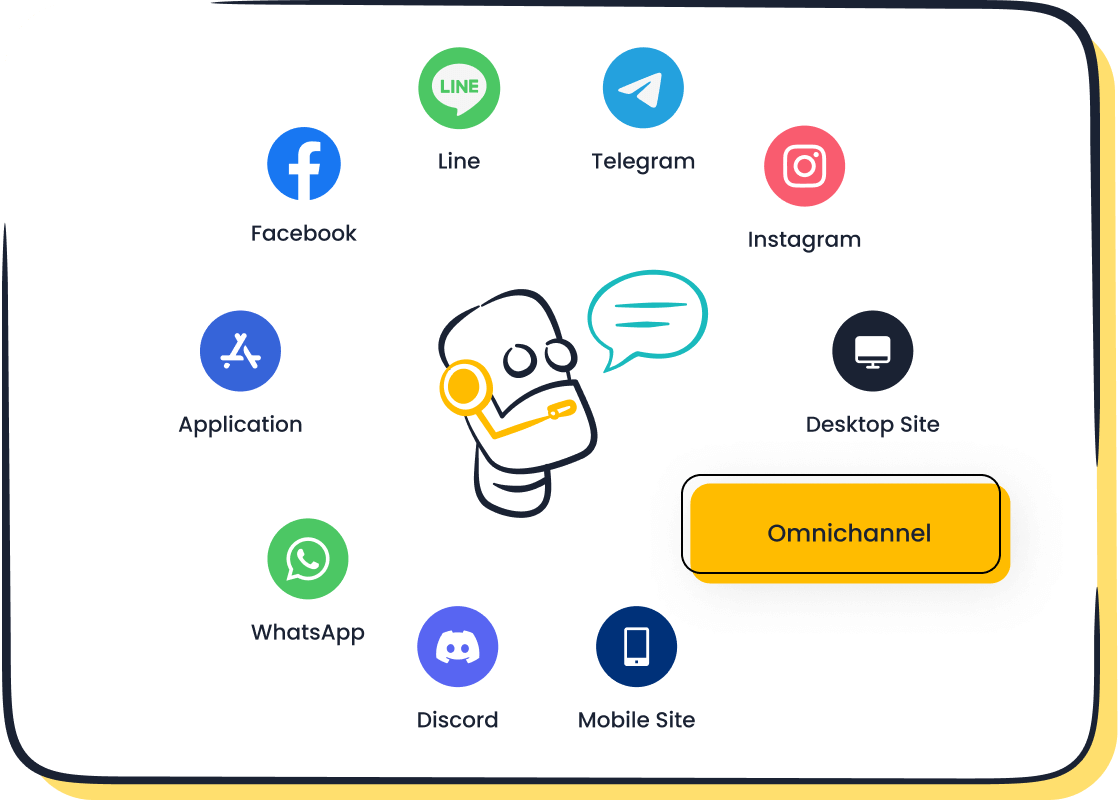
Many companies use AI chatbots to enhance customer interactions. Sobot's chatbot stands out with its multilingual capabilities and no-coding-required setup. It integrates seamlessly with platforms like WhatsApp and SMS, offering omnichannel support. Businesses using Sobot's chatbot report a 20% boost in conversions and a 30% increase in leads, showcasing its effectiveness.
Limitations of Current AI Chatbots
Challenges in understanding complex queries
Despite advancements, AI chatbots struggle with complex or ambiguous queries. They may misinterpret user intent or provide irrelevant answers. Studies reveal that 75% of users believe chatbots fail to address intricate issues effectively. This limitation highlights the need for continuous improvement in AI algorithms.
Issues with personalization and context retention
Maintaining context during extended conversations remains a challenge for AI chatbots. They often fail to remember previous interactions, leading to repetitive or impersonal responses. This can frustrate users and reduce satisfaction. Enhancing contextual understanding is crucial for improving chatbot performance.
Emerging Trends in AI Chatbots
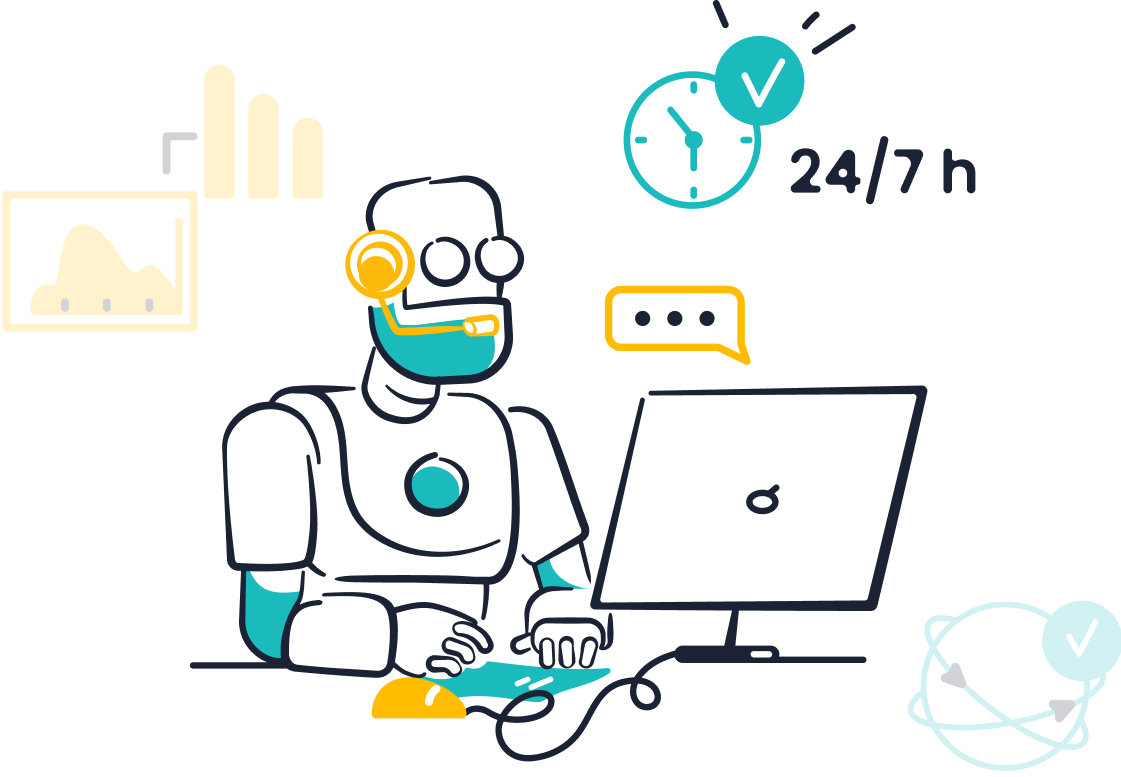
Advancements in Conversational AI
Enhanced natural language processing (NLP) capabilities
AI chatbots are becoming smarter, thanks to advancements in natural language processing (NLP). These improvements allow chatbots to understand subtle meanings and context in conversations, making their responses more accurate and human-like. For example, transformer models and few-shot learning have revolutionized how chatbots interpret user input. This progress enables them to handle complex queries with ease. As a result, businesses can rely on conversational AI to provide seamless customer interactions. According to Gartner, by 2027, 25% of businesses may use chatbots as their primary customer service channel, showcasing the growing reliance on this technology.
Multilingual and voice-enabled chatbots for global communication
The rise of multilingual and voice-enabled chatbots is transforming global communication. These chatbots can interact with users in their preferred language, breaking down language barriers. Voice-enabled chatbots, like virtual assistants, add convenience by allowing hands-free interactions. Sobot’s AI chatbot, for instance, supports multiple languages and integrates with platforms like WhatsApp and SMS. This versatility makes it an ideal solution for businesses aiming to connect with diverse audiences. With the chatbot market projected to grow at an annual rate of 23.9%, these features are becoming essential for global outreach.
Hyper-Personalization in AI Chatbots
Leveraging user data for tailored interactions
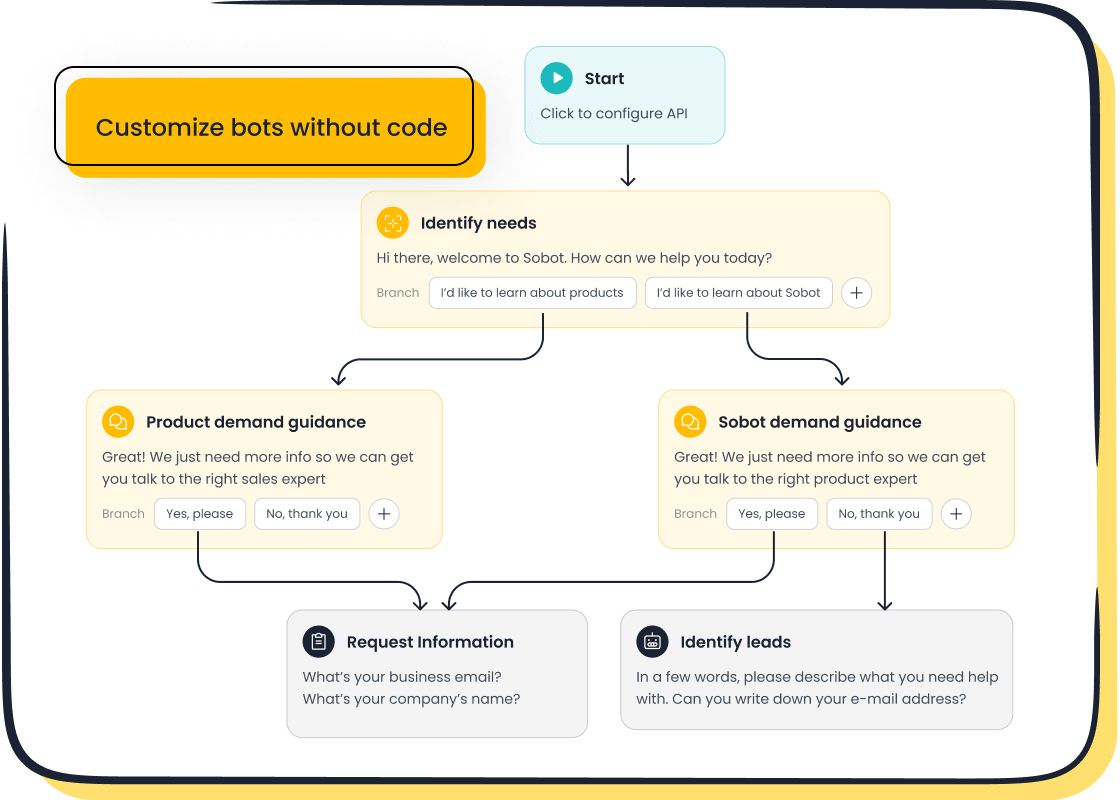
Hyper-personalization is a game-changer for AI chatbots. By analyzing user data, chatbots can offer tailored recommendations and responses. This approach enhances customer satisfaction and builds brand loyalty. For instance, 91% of consumers prefer brands that provide relevant offers. Sobot’s chatbot uses advanced data analytics to deliver personalized experiences, helping businesses increase conversions and engagement. This trend highlights the importance of using conversational AI to create meaningful interactions.
Real-time adaptation to user preferences and needs
Modern chatbots can adapt to user preferences in real time. They analyze ongoing conversations to adjust their responses, ensuring they meet user needs effectively. This capability improves efficiency and reduces the need for human intervention. For example, context-aware chatbots engage users in meaningful dialogue, keeping them invested. Businesses leveraging this trend can resolve queries faster and boost customer satisfaction.
Emotional Intelligence in Chatbots
Detecting and responding to user emotions
Emotional intelligence is the next frontier for AI chatbots. By integrating sentiment analysis, chatbots can detect user emotions and adjust their tone accordingly. This ability fosters a deeper connection with users. Research shows that emotional disclosure by chatbots enhances user intimacy, leading to higher satisfaction and reuse intentions. Chatbots that understand emotions can transform automated interactions into empathetic experiences.
Enhancing empathy in automated interactions

Empathy in chatbots improves user trust and satisfaction. By responding to emotions, chatbots can provide comforting and supportive interactions. For example, a chatbot assisting with mental health resources can offer empathetic responses, making users feel valued. Sobot’s chatbot, with its intelligent design, can be customized to align with user needs, ensuring a more human-like experience. This trend underscores the potential of conversational AI to create meaningful connections.
Integration with Emerging Technologies
Combining AI chatbots with IoT and AR/VR
AI chatbots are becoming smarter by integrating with Internet of Things (IoT) devices and augmented reality/virtual reality (AR/VR) technologies. This combination creates new possibilities for businesses to improve customer experiences and operational efficiency.
IoT devices collect real-time data, which AI chatbots analyze to detect patterns and predict optimal conditions. For example:
- AI captures data from IoT sensors to monitor equipment performance.
- Machine learning predicts maintenance needs, reducing downtime.
- Insights from IoT-enabled chatbots help fine-tune processes for better efficiency.
| Technology | Benefits |
|---|---|
| AI | Automates tasks, enhances customer service, provides 24/7 support. |
| IoT | Collects real-time data, optimizes resources, automates processes. |
| AR/VR | Creates immersive training environments, facilitates remote collaboration. |
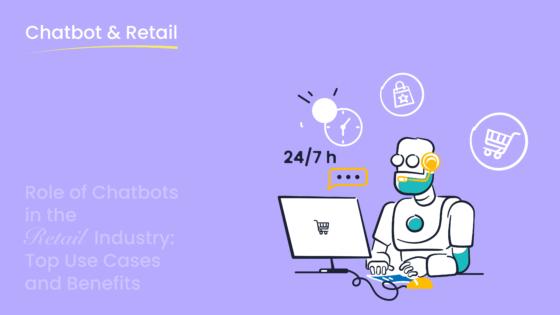
In retail, AR/VR-powered chatbots can guide you through virtual stores, offering a personalized shopping experience. Sobot’s chatbot, with its omnichannel support, could integrate seamlessly into such environments, helping businesses cater to diverse customer needs.
Expanding capabilities through blockchain and edge computing
Blockchain and edge computing are transforming how AI chatbots operate. Blockchain ensures secure and transparent data exchanges, which is crucial for industries like finance and healthcare. For instance, chatbots can use blockchain to verify transactions or protect sensitive customer information. This builds trust and enhances user confidence.
Edge computing, on the other hand, processes data closer to the source. This reduces latency and improves chatbot response times. Imagine a chatbot in a smart home system responding instantly to your commands because it processes data locally. Sobot’s AI chatbot, with its intelligent design, could leverage these technologies to deliver faster and more secure interactions.
By combining these emerging technologies, AI chatbots are evolving into powerful tools that redefine automated communication. You can expect more personalized, efficient, and secure interactions in the near future.
Applications Across Industries
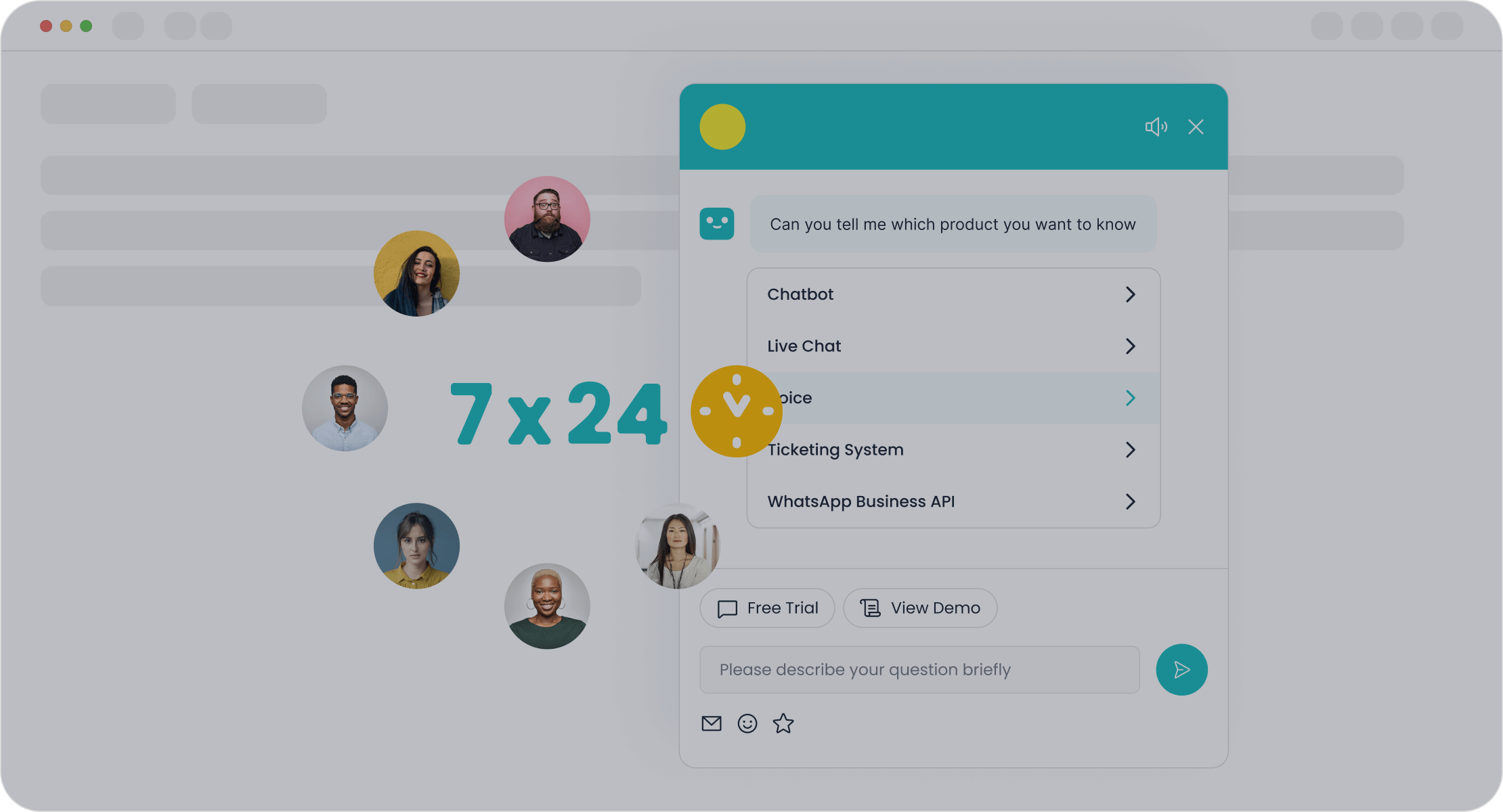
Customer Service and Support
Automating FAQs and routine inquiries with Sobot's Chatbot

AI chatbots have transformed customer support by automating repetitive tasks like answering FAQs and resolving routine inquiries. Sobot's AI chatbot excels in this area, offering 24/7 availability and multilingual support. It uses a knowledge base built from various sources to provide instant replies, ensuring users receive accurate information. Businesses using Sobot's chatbot report a 70% improvement in productivity and a 50% reduction in costs.
Customer satisfaction levels vary across industries, with tech companies leading at 73%, followed by retail at 67%. Manufacturing and healthcare trail behind at 57% and 56%, respectively. These statistics highlight the growing reliance on AI chatbots for enhanced customer experiences. By automating routine tasks, chatbots free human agents to focus on complex issues, improving overall efficiency.
Reducing response times and improving customer satisfaction
AI chatbots significantly reduce response times, enhancing customer support and service. For example, AkzoNobel reduced its average response time from six hours to just 70 minutes after integrating chatbots. Ticket resolution speeds increased by 52%, while staffing needs during peak seasons dropped by 68%. These innovations ensure faster issue resolution and consistent support quality.
Sobot's chatbot further improves customer satisfaction by offering proactive messaging and real-time intent assistance. This approach builds trust and loyalty, making it a valuable tool for businesses aiming to deliver enhanced customer experiences.
E-commerce and Retail
Personalized shopping assistance and order tracking
AI chatbots play a vital role in e-commerce by providing personalized shopping assistance. They analyze customer preferences and past purchases to recommend products tailored to individual needs. Sephora®, for instance, uses AI-powered chatbots to offer skincare advice and product recommendations. Virtual shopping assistants boost engagement and conversion rates by delivering tailored experiences.
Sobot's chatbot integrates seamlessly with platforms like WhatsApp and SMS, enabling businesses to track orders and provide real-time updates. With 77% of successful lead generation chatbots utilized by e-commerce stores, these tools are essential for driving sales and improving customer engagement.
Enhancing customer engagement through proactive communication
Proactive communication is key to retaining customers in the competitive retail space. AI chatbots send personalized marketing messages and reminders, keeping users engaged. Online retail has the highest chatbot acceptance rate at 34%, showcasing their effectiveness in this industry.
Sobot's chatbot enhances customer engagement by offering smart self-service options and proactive push messaging. These features help businesses connect with users meaningfully, fostering loyalty and driving repeat purchases.
Healthcare
AI chatbots for patient support and appointment scheduling
Healthcare providers use AI chatbots to streamline patient support and appointment scheduling. These chatbots enable patients to book, reschedule, or cancel appointments seamlessly, reducing wait times. They also handle repetitive administrative tasks, freeing up staff to focus on patient care.
Sobot's chatbot operates 24/7, ensuring patients can inquire about services anytime. Personalized reminders improve treatment adherence and reduce no-shows, enhancing patient engagement. With a 27% acceptance rate, healthcare ranks second in chatbot adoption, highlighting their growing importance in this sector.
Providing mental health resources and guidance
AI chatbots offer valuable support for mental health by providing resources and empathetic guidance. They use sentiment analysis to detect emotions and respond appropriately, creating a comforting experience for users. Chatbots assisting with mental health inquiries foster trust and intimacy, encouraging users to seek help.
Sobot's chatbot can be customized to align with user needs, ensuring empathetic and human-like interactions. This capability makes it an ideal solution for healthcare providers aiming to deliver enhanced customer experiences.
Banking and Finance
Assisting with account management and fraud detection
AI chatbots are transforming banking by simplifying account management and enhancing fraud detection. These chatbots can help you check balances, transfer funds, and monitor transactions instantly. They also analyze patterns in real-time to detect unusual activity, alerting you to potential fraud. For example, if a suspicious transaction occurs, a chatbot can notify you immediately and guide you through securing your account.

Banks benefit significantly from these innovations. Chatbots improve first-call resolution rates by 20%, saving time for both you and the bank. They also reduce costs, with each interaction saving $0.50 to $0.70 compared to traditional methods. Sobot's chatbot, with its 24/7 availability and intelligent design, ensures secure and efficient account management. Its ability to integrate with multiple platforms makes it a reliable tool for modern banking needs.
Offering 24/7 support for financial inquiries
Chatbots provide round-the-clock support, ensuring you can access assistance anytime. Whether you need help resetting a password or understanding loan options, chatbots deliver instant responses. This availability eliminates long wait times, enhancing your overall experience.
In 2022, 37% of the U.S. population interacted with a bank's chatbot, highlighting their growing popularity. Financial institutions adopting chatbots report up to 90% automation of customer interactions, allowing human agents to focus on complex issues. Sobot's chatbot excels in this area, offering multilingual support and proactive messaging. It ensures your inquiries are resolved quickly, improving satisfaction and trust.

With chatbots, banks can save over four minutes per inquiry and boost revenue by 25%. These tools are reshaping financial services, making them more accessible and efficient for you.
Challenges and Ethical Considerations
Data Privacy and Security
Ensuring compliance with privacy regulations
AI chatbots handle sensitive user data, making compliance with privacy regulations essential. Laws like GDPR and CCPA set strict guidelines for data handling. For example, GDPR requires clear consent for data processing, while CCPA allows users to opt out of data sales. Non-compliance can result in hefty fines, such as €20 million under GDPR or $7,500 per violation under CCPA. Businesses must navigate these regulations to protect user rights and avoid penalties.
| Aspect | GDPR | CCPA |
|---|---|---|
| Scope | Applies to entities processing EU residents' data | Covers businesses dealing with California residents' data |
| Consumer Rights | Access, correct, and delete personal data | Know, delete, and opt-out of data sales |
| Penalties | Up to €20 million or 4% of global turnover | $7,500 per intentional violation |
Mitigating risks of data breaches and misuse
Chatbots are attractive targets for cybercriminals due to the vast amount of data they process. Risks include data breaches, misuse, and privacy violations. Managing user consent adds complexity, as many users struggle to understand how their data is used. Integrating third-party services further increases risks, as varying data practices can compromise security. Businesses must balance personalization with privacy to maintain user trust.
Bias and Fairness in AI
Addressing biases in chatbot algorithms
Bias in chatbot algorithms can lead to unfair outcomes. For instance, underrepresentation of women and minorities in tech contributes to biased datasets. In 2019, only 2.5% of Google’s employees were black, and 80% of AI professors were male. These disparities result in algorithms that overlook or mistreat underrepresented groups. Studies like Raso et al. (2018) show that algorithms often replicate societal biases, highlighting the need for diverse training datasets.
| Study | Findings | Relevance to AI Chatbots |
|---|---|---|
| Microsoft Tay Case | Chatbot adopted hate speech | Shows risks of biased training data |
| Beneduce (2020) | AI hiring tools exhibited gender bias | Illustrates bias risks in AI systems |
Ensuring equitable treatment of diverse user groups
Chatbots must treat all users fairly, regardless of background. Biased algorithms can perpetuate stereotypes, eroding trust. Businesses should prioritize diversity in training data and regularly audit algorithms to identify and address biases. This approach ensures chatbots provide equitable and inclusive interactions.
Building User Trust
Transparency in chatbot usage and capabilities
Transparency is key to building trust in chatbots. Users should know when they are interacting with a chatbot and understand its capabilities. Clear communication about data usage and limitations fosters confidence. For example, labeling chatbots as automated systems helps set realistic expectations and reduces frustration.
Balancing automation with human oversight
While chatbots excel at handling routine tasks, human oversight remains crucial for complex issues. Combining automation with human intervention ensures accurate and empathetic responses. Businesses like Sobot achieve this balance by integrating chatbots with live agents, creating seamless customer experiences. This approach builds trust and enhances satisfaction.
Future Directions and Opportunities
Autonomous Learning and Adaptation
Chatbots improving through unsupervised learning
AI chatbots are evolving rapidly through unsupervised learning. This method allows them to analyze vast amounts of unlabeled data, identifying patterns and improving their understanding of user intent. For example, chatbots can now recognize subtle differences in phrasing, enabling them to provide more accurate responses. As they process more interactions, their ability to predict user needs improves, reducing the need for human intervention. This advancement enhances the future of chatbots, making them smarter and more efficient over time.
Continuous evolution based on user feedback
User feedback plays a vital role in shaping the future of chatbots. By analyzing real-time interactions, chatbots can adapt their responses to better meet user expectations. Metrics like intent recognition and real-time analytics help measure performance and identify areas for improvement. For instance, Sobot's chatbot uses these insights to refine its capabilities, ensuring a seamless user experience. This continuous evolution not only boosts efficiency but also enhances customer satisfaction.
Expanding Accessibility
Making chatbots more inclusive for users with disabilities
AI chatbots are becoming more inclusive, catering to users with disabilities. Features like voice recognition and text-to-speech make interactions accessible to visually impaired users. Similarly, chatbots with simplified interfaces assist individuals with cognitive challenges. Sobot's chatbot, with its multilingual and omnichannel support, ensures that everyone can access its services. These advancements highlight the potential of AI in transforming customer interactions for all users.
Bridging the digital divide in underserved regions
AI chatbots are bridging the digital divide by providing essential services in underserved regions. With their ability to operate on low-bandwidth networks, chatbots can reach areas with limited internet access. For example, voice-enabled chatbots help users in rural areas access healthcare or financial services. The global chatbot market, which reached $4.7 billion in 2022, is expected to grow at an annual rate of 23.3% from 2023 to 2028, showcasing their expanding reach.
Transforming Customer Experiences
Creating seamless, omnichannel communication with Sobot's solutions
Sobot's chatbot is redefining the future of chatbots by offering seamless, omnichannel communication. It integrates with platforms like WhatsApp and SMS, ensuring consistent interactions across multiple channels. This approach simplifies customer journeys, making it easier for you to get the support you need. With 80% of companies using AI to improve customer experience, tools like Sobot's chatbot are essential for staying competitive.
Building stronger customer relationships through AI-driven interactions
AI chatbots are transforming customer interactions by fostering stronger relationships. They provide personalized experiences, anticipate user needs, and respond instantly. For example, 90% of customers expect immediate replies, and chatbots deliver on this expectation. Sobot's chatbot enhances these interactions with features like real-time intent assistance, ensuring you feel valued and understood. This focus on personalization and efficiency strengthens trust and loyalty, paving the way for long-term success.

AI chatbots have transformed automated communication, evolving from basic systems to intelligent conversational agents. They now handle diverse queries, offering personalized recommendations and efficient responses. This shift has revolutionized industries, with 53% of chatbots used in IT, 23% in administration, and 20% in customer care. Their growing adoption reflects their ability to enhance customer experiences and streamline operations.
Sobot plays a pivotal role in advancing conversational AI. Its AI-powered chatbot delivers multilingual support, 24/7 availability, and smart self-service, helping businesses improve productivity by 70%. Addressing challenges like data privacy and bias will unlock even greater potential for these tools.
Explore the possibilities of AI-driven communication with Sobot's Chatbot and embark on a journey to redefine customer interactions.
FAQ
What are advanced chatbots, and how do they differ from traditional ones?
Advanced chatbots use artificial intelligence to understand complex queries and provide accurate responses. Unlike traditional chatbots, they leverage technologies like natural language processing and machine learning to simulate human-like conversations. For example, Sobot’s chatbot offers multilingual support and real-time intent assistance, making it a powerful tool for businesses.
Can advanced chatbots improve customer satisfaction?
Yes, they can. Advanced chatbots reduce response times and provide personalized interactions, which enhance customer satisfaction. For instance, Sobot’s chatbot improves productivity by 70% and cuts costs by 50%, allowing businesses to focus on delivering exceptional customer experiences.
How do advanced chatbots handle multilingual communication?
They use natural language processing to understand and respond in multiple languages. Sobot’s chatbot supports various languages, enabling businesses to connect with global audiences. This feature ensures seamless communication, regardless of the user’s preferred language.
Are advanced chatbots secure for handling sensitive information?
Yes, they are designed with robust security measures. Features like data encryption and compliance with privacy regulations ensure user data remains protected. Sobot’s chatbot integrates these safeguards, making it a reliable choice for industries like finance and healthcare.
How can businesses benefit from advanced chatbots?
Businesses can automate routine tasks, reduce operational costs, and boost conversions. Sobot’s chatbot, for example, offers 24/7 availability and smart self-service options, helping companies save time and resources while improving customer engagement.
See Also
Essential Tips for Selecting Top Chatbot Solutions
Simple Steps to Integrate Chatbots on Your Website
Enhancing E-commerce Experience with Effective Chatbots